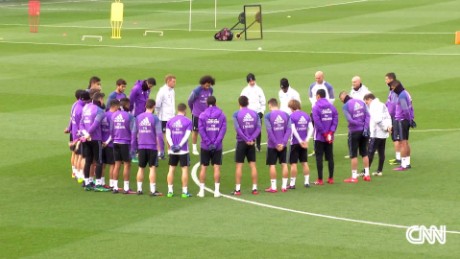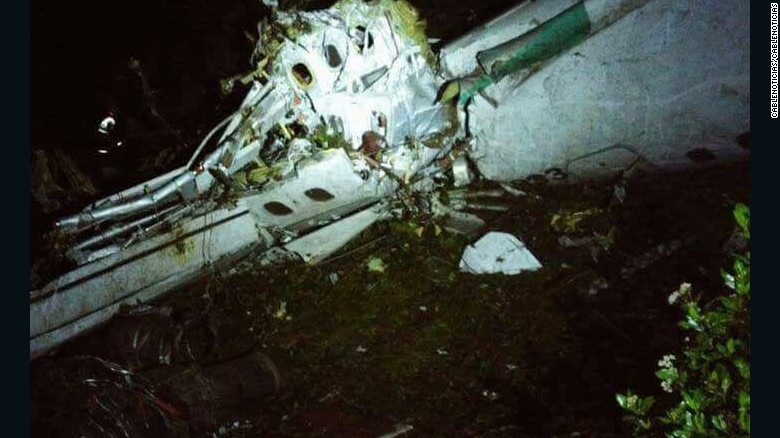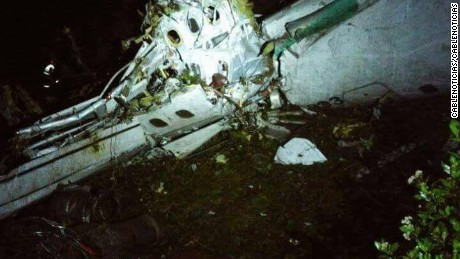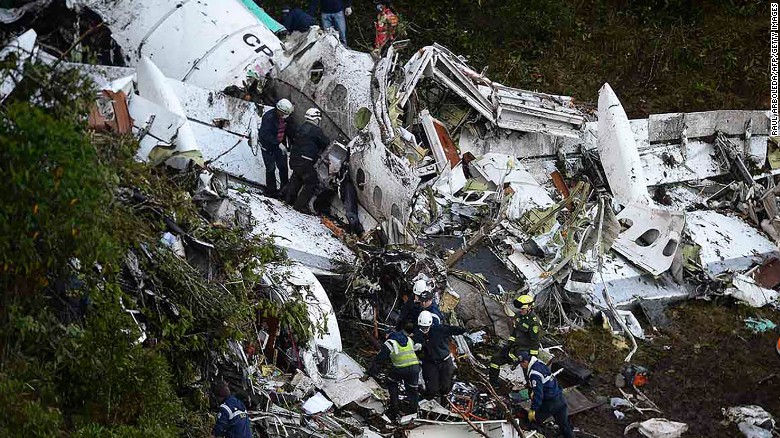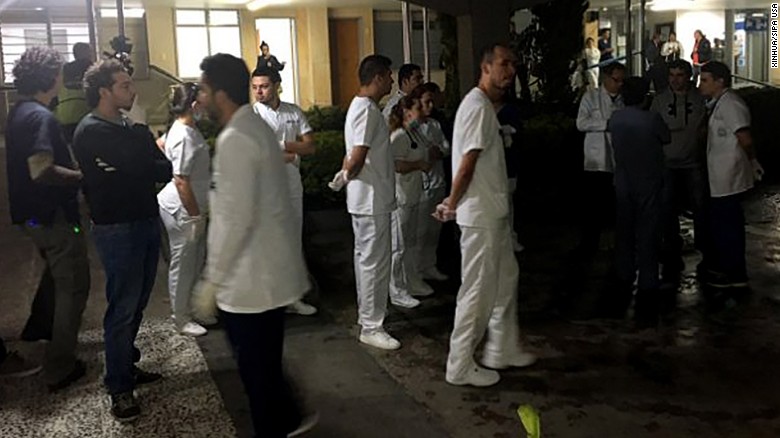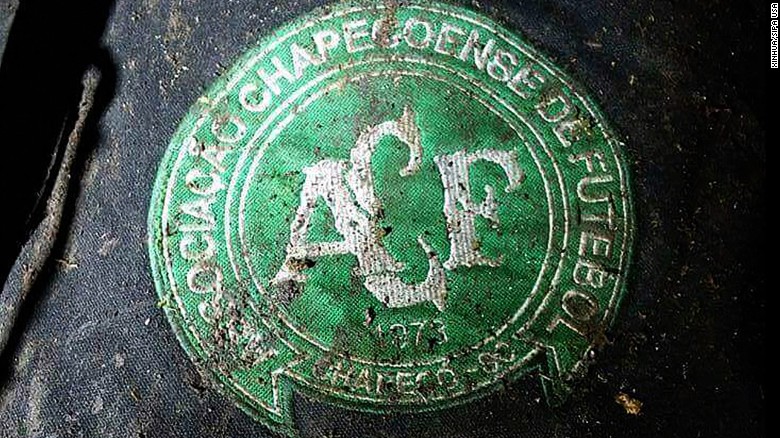(CNN) The fairytale rise of Brazil's Chapecoense from small football club to national heroes has been cut tragically short, leaving the country mourning the loss of one its most endearing sports teams. On Tuesday, the airplane carrying the Brazilian team to the biggest game in the club's history crashed in Rionegro, Colombia, killing 75 people.
Six people survived the crash and were taken to local hospitals, according to authorities.
"The dream is over," Plinio David de Nes Filho, chairman of the club's board told TV Globo.
"Yesterday morning I was saying goodbye to them, they told me they were going in search of the dream, to make this dream a reality.
"And we, very excitedly, shared this dream with them. But the dream was over this morning."
Tragic end
Chapecoense was supposed to play the first leg of its Copa Sudamericana final on Wednesday against Colombian side Atletico Nacional from Medellin before its plane came down.
"Chapecoense was one of the most lovely fairy tales," Argentine sports journalist Martin Mazur told CNN.
"Unlike what happens with the big Brazilian clubs, Chapecoense's humble story and its magnificent run in the Copa Sudamericana was naturally embraced by Brazilian football fans in general, becoming a fans' favorite.
"It was South America's Cinderella -- nobody could have predicted this macabre ending."
Cup dream
The Copa Sudamericana, the second biggest intercontinental club competition in South America and the equivalent to Europe's Europa League, had provided the backdrop to Chapecoense's remarkable story.
The club, from Chapeco in the state of Santa Catarina in the south of Brazil was only formed in the 1970s and was playing in the country's fourth tier as recently as 2007.
A team with few big names, apart from Cleber Santana, who once played for Atletico Madrid and Mallorca in Spain, it went toe-to-toe with the big boys of Brazilian football.
Full of grit, team spirit and determination, not to mention quality, Chapecoense was a relatively unfashionable team hoping to tread a path laid out by English champions Leicester City.
This season had been full of adventure with Chapecoense having traveled to Argentina twice to defeat Independiente and San Lorenzo on its way to the final, as well as an aggregate victory over Colombian side Junior.
Victory in the final of the Copa Sudamericana would not only have been the greatest triumph in Chapecoense's history but would have also allowed it to compete in next season's Copa Libertadores, the most prestigious club competition on the continent.
Ninth in Brazil's top-flight, it was supposed to finish its domestic season against Atlético Mineiro on Sunday before the return game with Atletico Nacional on December 6.
That game was supposed to take place in Curitiba, some 400km away because the team's own stadium, Arena Condá, does not have the capacity or infrastructure to host a major final.
'Incredible run'
"Chapecoense is a relatively young club, compared to the more well-established giants of the Brazilian game, and it seemed to be coming of age this season," football journalist and author Euan McTear told CNN.
"The club returned to the top flight of Brazilian football just three years ago after a three-decade hiatus and a number of the players that led them on this incredible run to the final of the Copa Sudamericana were the same players who helped them win promotion from the Serie B in 2013.
"I think that is why people warmed to them and to their success, because they were witnessing before their eyes the progression of a united group of players and of friends."
Former Brazil striker Romario expressed his sympathy on Twitter, writing: "I am deeply saddened by this tragedy. My solidarity goes out to the friends and family members of the athletes, the journalists, the technical team and the crew. #forcachape."
Not a first in football
This is not the first time a football team has been involved in an air disaster.
In 1949, 18 Torino players were killed in a crash near Turin as the club returned from a friendly in Lisbon. The accident is remembered every year by the club's fans at the scene of the crash -- the Superga hillside by the city's iconic basilica.
In 1958, eight Manchester United players lost their lives when their flight crashed on the third attempt to take off after re-fuelling in Munich as the club returned from knocking Red Star Belgrade out of the European Cup.
In 1993, 18 members of the Zambia national team died in a plane crash while en route to a World Cup qualifier in Senegal. The accident killed all 30 people on board.

